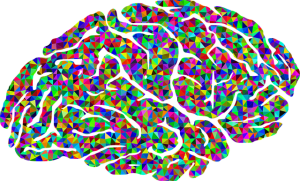Why Struggle Is Essential for the Brain — and Our Lives
 As parents and teachers, we do just about everything we can to make sure that children don’t struggle. It turns out we are making a terrible mistake. Research shows that struggling is absolutely critical to mastery and that the highest achieving people in the world are those who have struggled the most. The more I communicate this message to parents and teachers the more stories I hear of complete personal transformation.
As parents and teachers, we do just about everything we can to make sure that children don’t struggle. It turns out we are making a terrible mistake. Research shows that struggling is absolutely critical to mastery and that the highest achieving people in the world are those who have struggled the most. The more I communicate this message to parents and teachers the more stories I hear of complete personal transformation.
Neuroscientists have found that mistakes are helpful for brain growth and connectivity and if we are not struggling, we are not learning. Not only is struggle good for our brains but people who know about the value of struggle improve their learning potential. This knowledge would not be earth shattering if it was not for the fact that we in the Western world are trained to jump in and prevent learners from experiencing struggle.
An international study of mathematics teaching found that teachers in Japan put their students in places of struggle 44 percent of the time in classrooms—they saw this less than 1 percent of the time in U.S. classrooms. What do we parents and teachers do instead? We jump in and show the way, offering steps to a solution to help save our students from struggle. This is in large part because this new science is not widely available and we are culturally trained to feel bad, and to rush in and help, when this is probably the last thing we should do.
The research on the impact of struggle turns out to help adults too—in all sorts of jobs. I interviewed sixty-two people for my new book, “Limitless Mind.” Many of them shared similar accounts of how they used to go into meetings afraid they would be found out for not knowing something. After learning about the importance of not knowing and of engaging in struggle they now proudly show up and say “I don’t know, but I will find out.” They display a mindset of discovery and curiosity, which has helped their lives in many ways.
Once we stop the charade of knowing everything, and embrace knowing less, with a willingness to sit with uncertainty, unexpected things happen.
When I tell young learners that struggle and mistakes are the best times for our brains, it is freeing. Students no longer give up on problems when they find them hard—they push through the struggle to the wonderful places on the other side. When students look at me with a puppy dog face and say: “This is hard,” I say, “That is fantastic. That feeling of ‘hard’ is the feeling of your brain developing, strengthening and growing.”
Excerpted from “Why Struggle Is Essential for the Brain — and Our Lives” by Jo Boaler, the Nomellini-Olivier Professor of Education at Stanford and author of the new book “Limitless Mind: Learn, Lead & Live without Barriers.” Read the full article in EdSurge.
Source: EdSurge | Why Struggle Is Essential for the Brain — and Our Lives, https://www.edsurge.com/news/2019-10-28-why-struggle-is-essential-for-the-brain-and-our-lives | © 2011-2019 EdSurge Inc.
Care Coordinators can arrange a free 30 minute Care Consultation so you can explore options with an expert. We invite you to call or email our Care Coordinators at 650.688.3625 or careteam@chconline.org to set up an initial Parent Consultation appointment.





